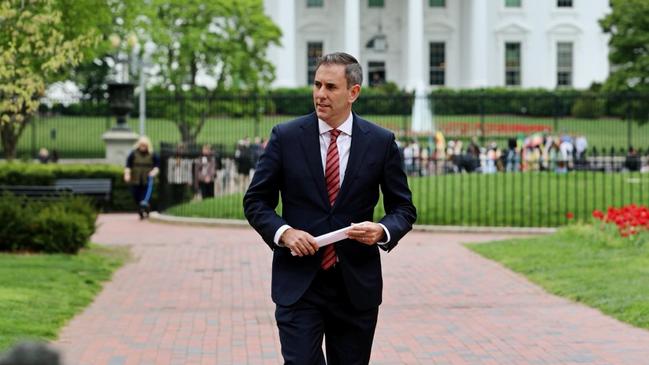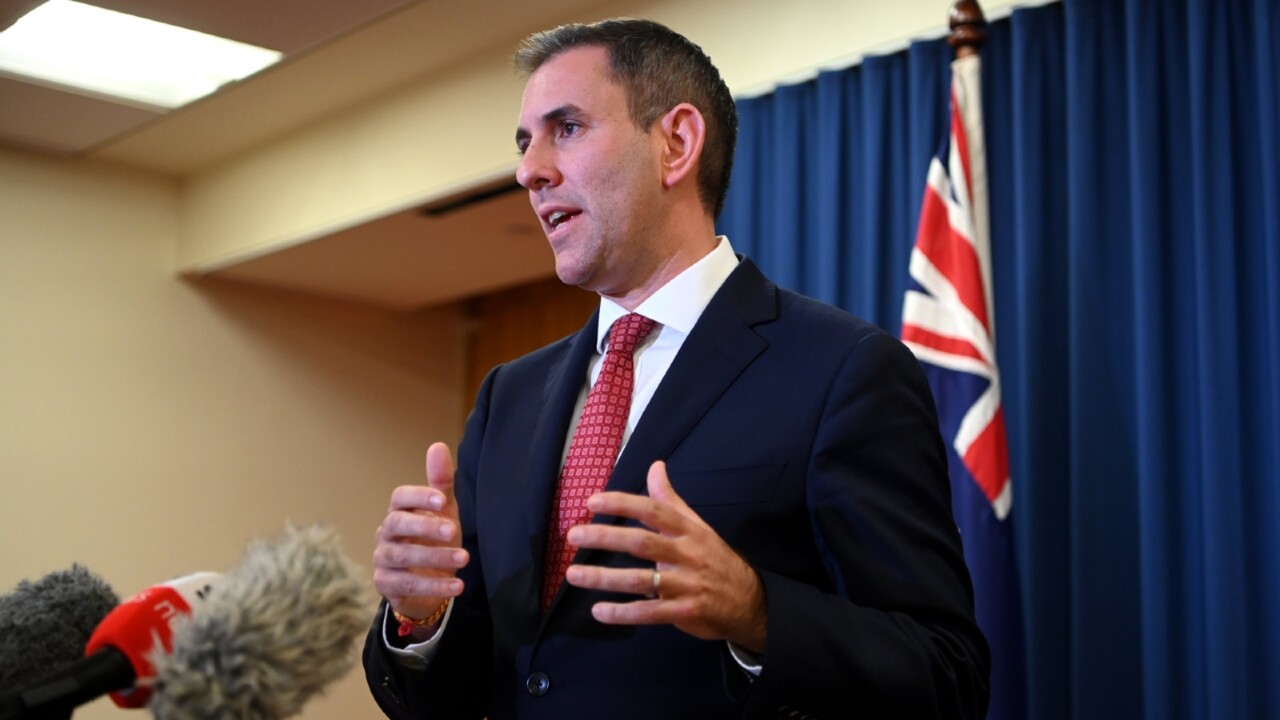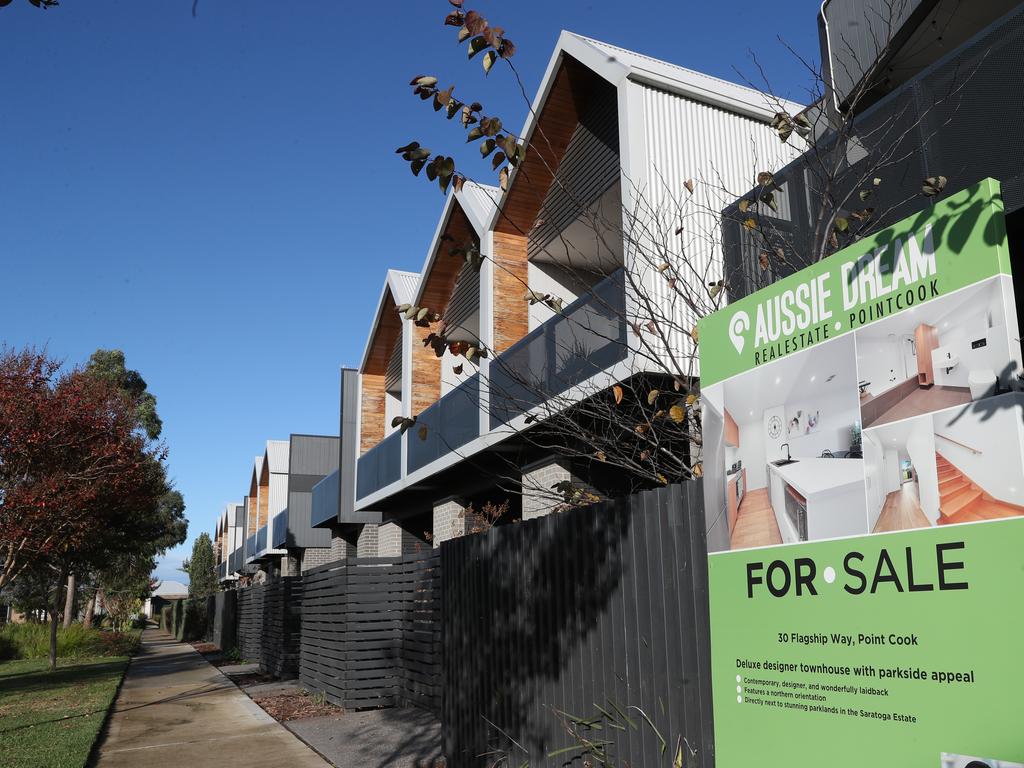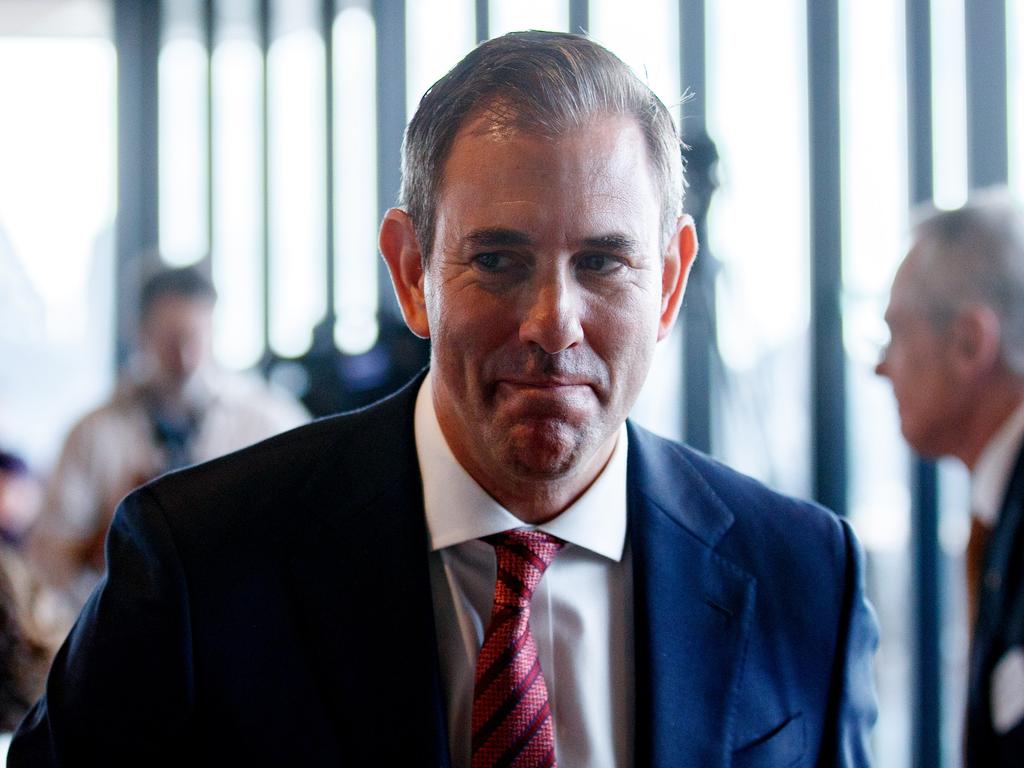Jim Chalmers carries weight of the world: slow global growth to hit budget
A deteriorating global outlook may force a downgrade to the nation’s growth forecast, as Jim Chalmers reveals Treasury is predicting weakening activity from Australia’s major trading partners.

A deteriorating global economic outlook may force a downgrade to the nation’s growth forecast in the May budget, as Jim Chalmers reveals Treasury is predicting weakening activity from Australia’s major trading partners, including China, Japan and the US.
The gloomier view will reinforce the Treasurer’s plans to deliver a revamped fiscal and economic strategy that will have an “emphasis on security” centred on Labor’s flagship Future Made in Australia policy, while ensuring that the new spending does not add to still high inflation.
The Australian understands Treasury is reviewing its December forecasts that Australia’s economy will grow by 1.75 per cent this financial year and 2.25 per cent in 2024-25, with the slowing growth of major trading partners raising the prospect of a downgrade.
Sources said the likelihood of lower domestic growth forecasts in the budget would in part depend on US national accounts released between now and mid-May.
With the growth challenge becoming more acute here and in other advanced countries, Wednesday’s consumer price report for the March quarter looms as the most critical set of Australian economic figures so far this year, as worries grow that central banks here and abroad may need to keep interest rates higher for longer if inflationary pressures prove more persistent than hoped.
Dr Chalmers on Sunday morning returned from a series of sobering meetings in Washington DC, where the message from assembled finance ministers, World Bank officials and central bank governors was of growing dangers from a volatile world.
In the upcoming budget, he will announce a major package of tax incentives and “significant” new investments, most likely under the banner of the Future Made in Australia policy aimed at building the foundations for a more resilient economy and driving the net-zero transformation.
“Events in the Middle East are casting a shadow over the global economy, compounding concerns about lingering inflation and weaker growth,” Dr Chalmers said barely three weeks out from delivering Labor’s third budget. “The fraught and fragile global outlook was a big feature of the discussions in Washington DC, and will be a big factor as we put the finishing touches on the budget.
“Given the global challenges coming at us, the May budget will put a premium on responsibility and an emphasis on security.”
The expected downgrades to the global growth outlook reflect the impact of high interest rates, as well as the uncertainty attached to the worsening Middle East conflict and challenges to the economy of Australia’s largest trading partner, China.
The upcoming federal budget will cut the estimate for Chinese real GDP growth in 2025 by 0.25 percentage points to 4.25 per cent, although Chinese growth in this calendar year was lift by a quarter of a percentage point, to 4.75 per cent. The estimate for Japanese growth in 2024 will be dropped by a quarter of a percentage point to 0.75 per cent.
With the Chinese economy expected to expand by 4.25 per cent in 2026, the updated estimates mean Treasury will forecast China’s growth rate will stay below 5 per cent for three straight years, which would be the weakest period of growth since China started opening up its economy in the late 1970s.
Britain’s economy is now anticipated to grow by 1.25 per cent next year, or half a percentage point slower than expected at the time of the December mid-year budget update.
EY chief economist Cherelle Murphy said “global supply chains are being disrupted and it is feared energy prices will spike again with accelerating geostrategic tension, especially in the Middle East”.
“All of this is rightly playing on the Treasurer’s mind as he attended the G20, IMF and World Bank meetings … it is clear there is more concern than positivity in his outlook as he finalises the budget,” Ms Murphy said.

After the global oil price peaked above $US90 a barrel on Friday following news of Israel’s strike on Iran, Dr Chalmers in a press conference in the US at the weekend said “conflict in the Middle East, rising, escalating tensions in the Middle East, do risk another spike in inflation and we need to avoid that”.
While the threat of a new shock to global commodity markets looms large, official figures on Wednesday are anticipated to show consumer price growth slowed further at the start of this year, from 4.1 per cent in the year to December to 3.4 per cent in March.
CBA head of Australian economics Gareth Aird believes the Reserve Bank will be in position to deliver its first cut since the pandemic at its September board meeting, and this week’s inflation report could trigger a rethink about when struggling mortgage holders may get some interest rate relief.
Mr Aird said the RBA had made it clear it was keen to preserve as much as possible of the employment gains made since the end of the Covid-19 lockdowns, and that “if the inflation data gives them the green light to start easing policy, they will take that”.
The RBA board at its last meeting did not explicitly discuss the case for a rate hike for the first time since the central bank began increasing the official cash rate in May 2022.
Yet central bank officials remain worried that prices pressures in the services sector will prove more persistent, as they are in the US.
“All in all, Wednesday’s CPI (consumer price index) is quite an important one in how we are tracking and where inflation is being generated,” Mr Aird said.
Dr Chalmers, who is still expected to deliver a second straight surplus for this financial year, said “relieving cost-of-living pressures, repairing our budget and reforming our economy is the best antidote to the kinds of risks that we see escalating around the world”.
Despite the Treasurer’s increasingly gloomy message, Mr Aird said the prospect of slower growth overseas should not factor “materially” into Treasury’s thinking in the lead-up to the budget.
“The Australian outlook is largely driven by domestic demand, like household spending,” he said.
“The profile for tax revenue is a little bit different and lower commodity prices might feed in to nominal GDP forecasts, but they (Treasury officials) won’t have high enough conviction on the outlook for global growth to make a downward revision to real GDP here.”






To join the conversation, please log in. Don't have an account? Register
Join the conversation, you are commenting as Logout